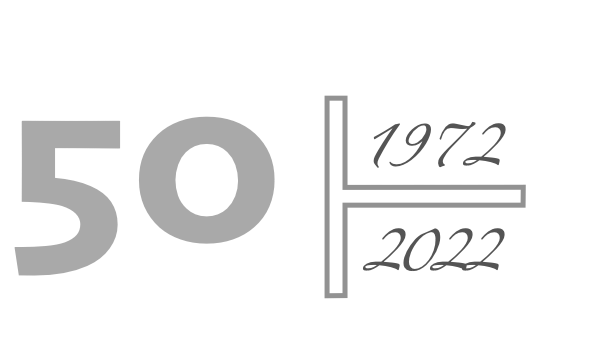[ Note: this is the staging version of the web site (i.e., not public). ]

|
2022: The Year of Prolog
|
The Prolog Day Symposium
November 10, 2022The Prolog Day Symposium presented the highlights of the Year of Prolog, celebrating the 50th anniversary of the birth of Prolog. There were more than 230 registered participants, both in-person at the auditorium and on line. It was broadcast online and recorded.
The Symposium included several sessions with presentations and round tables and the awarding of the inaugural edition of the ALP Alain Colmerauer Prolog Heritage Prize (in short: the Alain Colmerauer Prize) for recent practical accomplishments that highlight the benefits of Prolog-inspired computing for the future.
The morning was devoted to the nature and importance of Prolog, Prolog thinking, and Prolog education. The first session visited the past, present, and future of Prolog and explored its advantages as a language for explainable AI and for computing more generally. The second session discussed the topics of Prolog thinking and Prolog Education and presented the ongoing Prolog education initiative for introducing young people to Prolog.
The afternoon was devoted to the applications of Prolog, including also the session devoted to the Alain Colmerauer prize, with presentations of the Prolog applications selected as the five finalists for the prize. This was followed by the awarding of the prize and the launching of the "Future of Prolog Initiative".
A brochure was edited with details on the day, the speakers, and sponsors. You can also browse through some photos of the event.
Detailed Program:
Welcome and ringmaster of the morning: Jean Rohmer
- 09h00 – 09h15: Opening Addresses
 Jean Rohmer and Guy-Alain Narboni
Jean Rohmer and Guy-Alain Narboni - 09h15 – 10h45: Session 1 What is Prolog and why is it important? - Chair: Robert Kowalski
Talk: 50 years of Prolog and Beyond
 by Manuel Hermenegildo, and Round Table
by Manuel Hermenegildo, and Round Table  including Stefania Costantini, Randy Goebel, Gopal Gupta, Michael Genesereth, Manuel Hermenegildo, Jean Rohmer, and David S. Warren. Questions posed to the panel.
including Stefania Costantini, Randy Goebel, Gopal Gupta, Michael Genesereth, Manuel Hermenegildo, Jean Rohmer, and David S. Warren. Questions posed to the panel. - 10h45 – 11h15: Break
- 11h15 – 12h45: Session 2 Prolog Thinking and Education - Chair: Veronica Dahl
Talk: Prolog's Educational Potential
 by Veronica Dahl and Round Table
by Veronica Dahl and Round Table  including Laura Cecchi, Robert Kowalski, José Francisco Morales, Asya Stoyanova-Doycheva, and Markus Triska. Questions posed to the panel.
including Laura Cecchi, Robert Kowalski, José Francisco Morales, Asya Stoyanova-Doycheva, and Markus Triska. Questions posed to the panel. - 12h45 – 14h15: Lunch
- 14h15 – 14h45: Alain Colmerauer and the Prolog Adventure (film)

- 14h45 – 15h00: On stage: Several generations of Prolog Heroes

- 15h00 – 16h00: Session 3: Prolog-powered applications - Chairs: Laurent Gouzènes and Annie Liu
Talk: Survey of Prolog Applications
 by Laurent Gouzènes and Round Table
by Laurent Gouzènes and Round Table  (Chair: David S. Warren) including Mats Carlsson, Laurent Cervoni, John Gallagher, Laurent Gouzènes, Benjamin Grosof, Clive Spenser, Theresa Swift, and Jan Wielemaker. Questions posed to the panel.
(Chair: David S. Warren) including Mats Carlsson, Laurent Cervoni, John Gallagher, Laurent Gouzènes, Benjamin Grosof, Clive Spenser, Theresa Swift, and Jan Wielemaker. Questions posed to the panel. - Session 4: Alain Colmerauer Prize - Chair: Francesca Rossi / Manuel Hermenegildo
- 16h00 – 16h40: Presentations by finalists:

- ProB: Harnessing the Power of Prolog to Bring Formal Models and Mathematics to Life. Michael Leuschel and STUPS Group.
- Logic Model Processing. Pierre Dissaux.
- 16h40 – 17h00: Break
- 17h00 – 18h00: Presentations by finalists:

- Symbium: The Computational Law Company. Michael Genesereth, Abhijeet Mohapatra, and Leila Banijamali.
- PROLEG: Practical Legal Reasoning System. Ken Satoh.
- Pacioli: a PROLOG system for financial report validation. Miguel Calejo and and Charles Hoffman.
- 18h00 – 18h15: Announcement of the Prize winner and Prize ceremony
- Prize selection process and words by winners Michael Leuschel and STUPS Group, for ProB.

- Prize selection process and words by winners Michael Leuschel and STUPS Group, for ProB.
- 18h15 – 18:20: Launching of the "Future of Prolog Initiative"
 Thomas Eiter, president of the ALP.
Thomas Eiter, president of the ALP. - 18h20 – 18h30: Closing

- 18h30 – 20h00: Cocktail
The Year of Prolog and its activities, including the Alain Colmerauer Prize, are sponsored by the Association for Logic Programming, the Prolog Heritage Association, the AI Journal, Institut Carnot Cognition, and Institut Fredrik Bull, among others.




